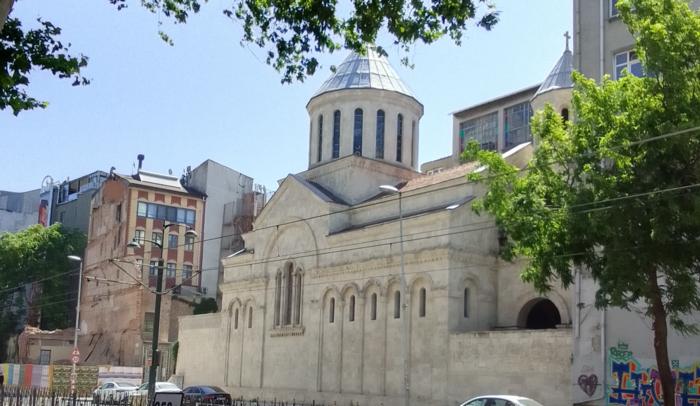In the intricate tapestry of history, the Ottoman Empire stands out as a remarkable civilization that intricately managed a diverse array of cultures and religions within its dominion. Lasting from around 1300 until 1922, the empire extended over vast territories, including present-day Turkey, Egypt, Greece, and Hungary. Its historical narrative is often characterized by a perceived tolerance toward non-Muslim religions. However, recent research by Professor Masayuki Ueno of Osaka Metropolitan University reveals deeper layers to this narrative of tolerance, indicating it was more a strategy for control than a genuine embrace of diversity.
The paradigm of population management employed by the Ottoman Empire included distinctive practices akin to modern surveillance techniques. The introduction of internal passports and the active monitoring of communities were not merely administrative actions; they were methods rooted in suspicions that drove the empire to carefully observe the behaviors of diverse populations. In particular, after the 1821 Greek revolt, significant changes were enforced to maintain control over the Ottoman populace, reflecting an empire on the defensive against perceived threats from non-Muslim groups.
Professor Ueno’s research elucidates that the Ottomans did not deploy covert agents among non-Muslim citizens to carry out their surveillance. Instead, they tapped into the authority of non-Muslim religious leaders, granting them the power to oversee their communities. This arrangement effectively turned religious leaders into mechanisms for the state, allowing the Ottomans to exercise surveillance while presenting a facade of coexistence. Religious institutions served as both a source of authority and a means of control, operating under a system that lacked genuine tolerance.
Delving deeper into the historical context, it is crucial to note the complexities surrounding notions of identity and governance in the Ottoman Empire. The empire’s approach towards its subjects was dictated by a rigid hierarchical system, where religious identities played a central role in determining one’s status and rights. Christians, Jews, and other non-Muslim groups lived under a millet system, which allowed limited self-governance but simultaneously placed them under the watchful eye of the state, illustrating a calculated balance between autonomy and oversight.
The implications of this history resonate into modern discussions about governance and population management strategies. The parallels drawn between the Ottoman Empire’s techniques and contemporary state practices prompt a re-examination of historical frameworks. By reconstructing these narratives, Professor Ueno aims to bridge the gap between differing historical periods, tying early modern and modern studies into a single discourse that reflects on the empire’s methods of governance.
This re-evaluation of the Ottoman Empire’s treatment of non-Muslims is particularly timely as it resonates with ongoing debates about religious tolerance, community surveillance, and the broader implications of state control over individual freedoms. The portrayal of religious diversity during the Ottoman era, often misconceived as unfettered acceptance, reveals an underlying mechanism of systematic observation and regulation. By illuminating these historical realities, Ueno’s findings contribute to a nuanced understanding of how power dynamics shaped societal structures within the empire.
The work published in the journal Comparative Studies in Society and History holds significant value for historians and sociologists, as it challenges prevailing assumptions regarding tolerance and governance during the Ottoman era. It invites scholars to reconsider how the historical context of population management intertwined with socio-political dynamics has shaped the collective memory of the empire. This reshaped view fosters further inquiry into how religious authority and state power functioned in concert to manage a diverse empire.
In a broader scholarly context, Ueno’s research serves as a pivotal starting point for exploring the intersections of surveillance, religion, and governance throughout history. It underscores the importance of examining historical narratives with a critical lens, revealing the complexities and contradictions inherent within them. The legacy of the Ottoman Empire continues to provoke discussions surrounding modern governance, making this type of scholarship essential for understanding contemporary socio-political issues.
As scholars engage with Ueno’s findings, they are encouraged to draw parallels between past and present experiences regarding religion and state power. This historical inquiry not only enriches our understanding of the Ottoman Empire but also invites reflection on contemporary practices that echo these patterns of surveillance and control. The ongoing dialogue about the empire’s legacy will undoubtedly shape future research trajectories, challenging historians to explore the nuances of governance within multi-religious societies.
Ultimately, the examination of the Ottoman Empire’s past reveals significant insights relevant to today’s global landscape. By digging deeper into the mechanisms of power and control, we can better comprehend the intricacies of managing diverse communities. Ueno’s work exemplifies the use of historical scholarship as a vital tool in understanding the complexities of cultural coexistence and the ramifications of state authority.
As the narrative unfolds, we are prompted to reflect on how these historical understandings can inform our current realities. The evolution of policies aimed at population surveillance and control continues to resonate, offering lessons that transcend time and space. Engaging with this history not only enlightens our understanding of the past but also equips us to critically assess present-day societal dynamics.
The findings presented by Professor Ueno represent a crucial step toward a more comprehensive understanding of the Ottoman Empire’s legacy, urging us to acknowledge and explore the intricate relationship between religious authority and statehood in shaping communal life.
Subject of Research: Not applicable
Article Title: Purifying Istanbul: The Greek Revolution, Population Surveillance, and Non-Muslim Religious Authorities in the Early Nineteenth-Century Ottoman Empire
News Publication Date: 10-Jan-2025
Web References: http://dx.doi.org/10.1017/S0010417524000343
References: Comparative Studies in Society and History
Image Credits: (Credit: Osaka Metropolitan University)
Keywords: Ottoman Empire, religious tolerance, population surveillance, governance, historical research, non-Muslim communities, cultural coexistence, state authority.




